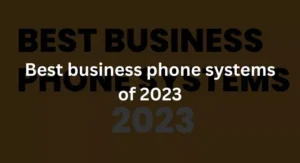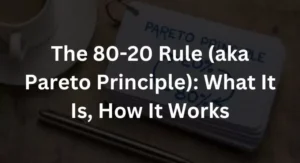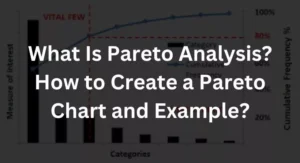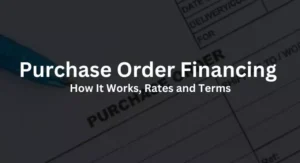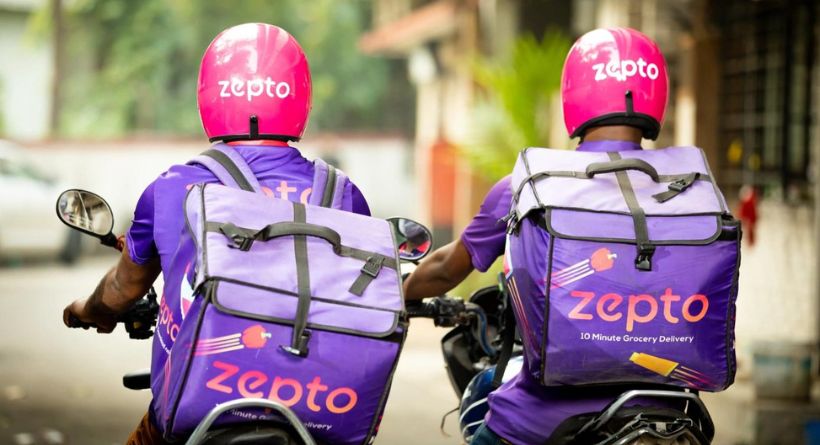
As it grows into other cities, Zepto, a firm with headquarters in Mumbai that offers 10-minute rapid food delivery, has more than quadrupled its value from $225 million to $570 million.
The $100 million Series C financing in Zepto was spearheaded by Y Combinator’s Continuity Fund, the companies stated on Monday. The round included participation from Glade Brook, Nexus, Breyer Capital, Lachy Groom, Global Founders Capital, and Contrary Capital, bringing the total amount raised to $160 million.
Two 19-year-old entrepreneurs who graduated from Stanford last year and launched the firm emerged from stealth mode in November. However, even before it started discussing the company, Zepto had already sparked a great deal of interest in the nearby startup scene as individuals started discussing it.
Zepto, whose name humorously employs a mathematical phrase to describe the company, provides a 10-minute grocery delivery service, a market that has seen explosive growth recently in many regions of the globe. Swiggy and BlinkIt (formerly Grofers), two firms with significant financial backing, have also joined the market for same-day grocery delivery.
Zepto also happened to show up at the site by chance. Just before the virus ravaged the country, Aadit Palicha and Kaivalya Vohra had travelled back to India for a vacation.
The youngsters were abruptly imprisoned inside their Mumbai homes after working together on a variety of initiatives, including a ride-hailing commuting software for school children. Even though food delivery were still authorised over most of the country and were considered to be important by the local administration, the two battled to secure the goods they needed while the epidemic raged.
In a previous interview, Palicha made the unsubstantiated assertion that “we thought that the online play of the Indian grocery delivery market, which is one of the biggest in the world, was wrestling with some significant execution problems.”
Palicha said in an interview last week that while the firm is overwhelmed by the enthusiasm and support from the consumers, it doesn’t want to “get comfortable.”
“We hold ourselves to very high standards and are sometimes a little too harsh on ourselves. People are pleased when their deliveries arrive in 10 minutes or less, but can we keep concentrating on growing our SKUs and improving our unit economics?” he said. (But at the same time, he said, Zepto is careful about maintaining the satisfaction of its staff and delivery partners, citing retention and internal feedback.)
Vohra claims to have a 65% month-over-month customer retention rate and a network of micro-warehouses with a combined daily capacity of more than 2,500 orders.
India’s e-grocery business, predicted to be worth $25 billion by 2025 in a Sanford C. Bernstein paper, is at risk. “From less than 1% currently, online grocery penetration is anticipated to reach between 3 and 5% by 2025. Rising income and prosperity, lower tier consumption, e-commerce penetration (30% CAGR), and a youthful population (50% below 25) are all still significant long-term structural factors. Spending on groceries as a percentage of income is still high at over 30%, according to its experts.

Zepto now has operations in Bangalore, Delhi, Gurgaon, Chennai, and Hyderabad, with intentions to open up shop in Pune and Kolkata shortly after. It has put up a network of over 100 dark shops throughout these cities, which it claims are designed for quick delivery, to assure speedy deliveries.
He remarked, “We are looking at a fairly insane runrate. “We have increased our business by ten times in the last 1.5 months. And right now, we’re striving to double by ten by February or March,” Palicha added.
The talent Zepto has been able to draw in recent months is another item that is going in the right way. The business has hired a number of well-known executives from Flipkart, Amazon, Uber, Dream 11, and Pharmeasy.
One of the reasons, according to Palicha, is that Zepto has made it possible for many executives who had relocated from Mumbai to Bangalore to return to their original city. However, he said that the startup’s rapid expansion, methodical operation, and goals had attracted others with like tastes. He stated, “We have been able to walk the walk.
“We are thrilled to double down and take the lead in this Zepto round” (YC W21). According to Anu Hariharan, a partner at Y Combinator, “we have noted that Aadit and Kaivalya are great entrepreneurs who bring relentless concentration and “Doordash-like” execution to the rapid commerce model since they went through Y Combinator.
They first went out with a different business model, switched over to fast commerce in August 2021, and are now attracting 100,000 new customers each week, 60% of whom are women. They have unmatched attention to detail when it comes to the logistical experience, which has allowed them to grow across the majority of large metros in only 5 months. Simply stated, we believe Zepto will prevail in this market in the long run.

